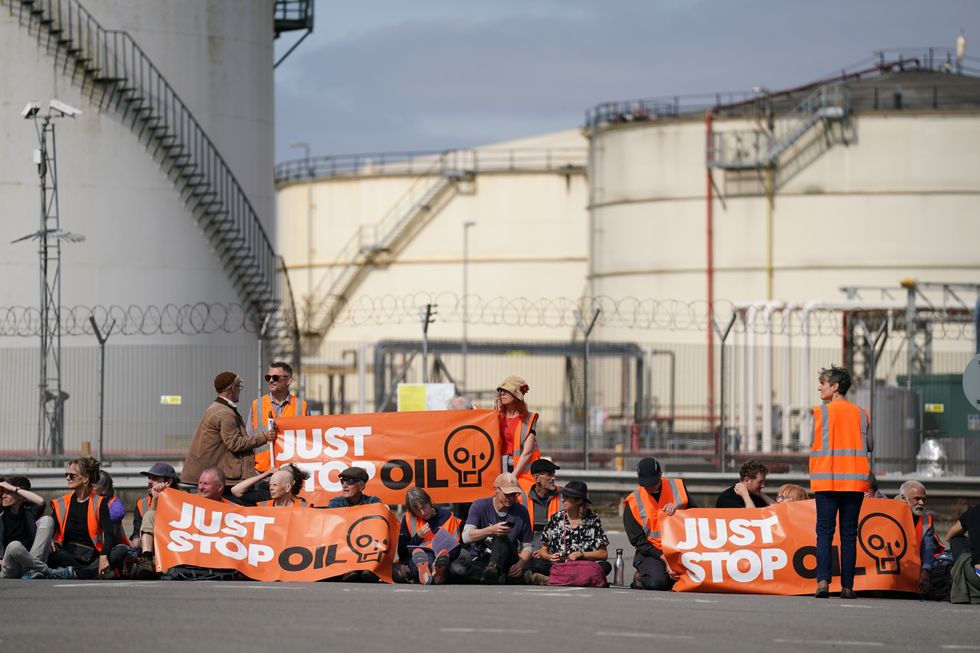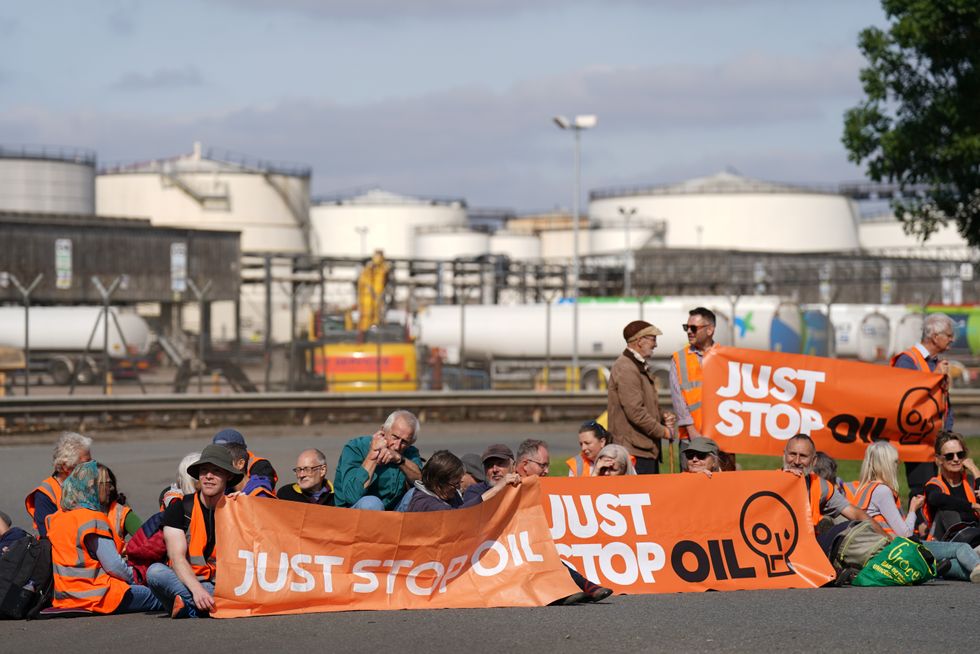Armed police are set to protect key natural gas processing terminals across Britain amid fears of eco-protests and foreign attacks.
The new plans, pushed through by Energy Secretary Ed Miliband, will see the Civil Nuclear Constabulary (CNC) expand its remit beyond nuclear sites to protect the terminals across Britain.
The CNC – an armed police force – will take over responsibilities from military police in April 2025.
Their immediate focus will be guarding coastal gas plants, including St Fergus terminal in Aberdeenshire, Easington in Hull, and Bacton in Norfolk in a move to bolster British energy security at what could represent key targets for the UK’s adversaries – both domestic and foreign.

The new plans, pushed through by Energy Secretary Ed Miliband, will see the Civil Nuclear Constabulary (CNC) expand its remit beyond nuclear sites
PA
GB News understands that the switch forms part of a long-established operational stance to ensure robust protections are in place.
But climate protests targeting energy infrastructure have grown increasingly common in Britain.
Last year, Greenpeace protesters occupied a ship transporting an oil platform to the North Sea for almost two weeks, while in 2022, hundreds of Just Stop Oil protesters blocked 10 oil terminals across the country, attempting to disrupt fossil fuel operations.
But the threat extends beyond eco-protests – the CNC, with their “specialist skills and capabilities” – will be deployed with fears of potential foreign attacks on UK infrastructure in mind, according to The Telegraph.
MORE PROTEST THREATS:
- Rise of far-left now ‘an issue of national security’: GB News documentary explores extremist threat to Britain
- ‘Sector on life support’: Protests held across 6,000 pharmacies in the UK on national day of action
- Extinction Rebellion eco-zealots plotting to take over Windsor Castle grounds with army of protesters

Just Stop Oil protesters blocked the entrance to the Kingsbury Oil Terminal near Birmingham in 2022
PA
This anxiety has grown since the 2022 sabotage of the Nord Stream pipelines – as well as a recent explosion on the Balticconnector pipeline between Finland and Estonia.
Britain’s reliance on foreign gas imports, particularly from Norway, Belgium, and the Netherlands, makes it especially vulnerable to such threats.
The CNC will begin its expanded role on April 1, 2025, under Miliband’s plans, while job adverts indicate the force is recruiting new officers for the St Fergus, Easington, and Bacton terminals already.
These sites are crucial to the UK’s energy supply – Bacton processes North Sea gas and supplies much of London and the south east, while Easington receives the majority of gas imports from Norway, which accounted for almost 60 per cent of the UK’s total gas imports last year.

Another image of the climate protesters staging an oil terminal blockade
PA
The CNC currently operates at around a dozen nuclear sites, including Sellafield in Cumbria, and maintains a marine protection unit to accompany nuclear shipments to and from the UK.
A spokesman for the CNC said: “The Energy Act 2023 amended the Energy Act 2004 to enable the CNC to provide a wider range of policing services beyond the civil nuclear sector in the interests of national security.
“Any provision of policing services outside of the CNC’s core mission of protecting civil nuclear sites and civil nuclear material, requires the approval of the Secretary of State for Energy Security and Net Zero.
“The Energy Act 2023 recognises that the CNC is an important national asset and enables the CNC’s specialist skills and capabilities to be utilised across a range of sectors to protect the public.”